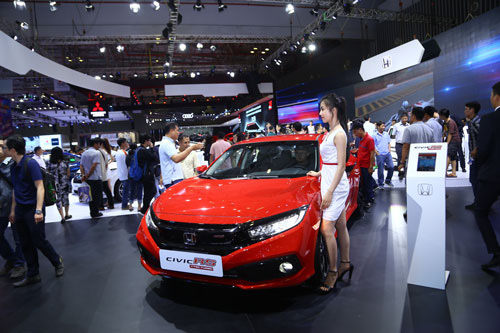Under the new regulation, car imports will be examined by vehicle type instead of by consignment, while pre-customs clearance examinations will be replaced with post examination. The time needed to fulfill import procedures for one consignment of imports will be shortened from 45 days to seven days.

The regulation, once it takes effect, is expected to lead to an import boom.
Moreover, the EU-Vietnam FTA (EVFTA), with the roadmap of cutting the car import tariff to zero percent after 9-10 years, will help improve the competitiveness of car models from Europe.
Foreign made cars will have more favorable conditions to enter the Vietnamese market as Vietnam will accept the EU’s quality certificate five years after the agreement implementation. This means that European cars won’t need to be examined and certified for quality when entering Vietnam.
With the new policies, car dealers believe that car imports will go through customs clearance more quickly, more cars will arrive, and the prices will be more attractive.
| Foreign made cars will have more favorable conditions to enter the Vietnamese market as Vietnam will accept the EU’s quality certificate five years after the agreement implementation. This means that European cars won’t need to be examined and certified for quality when entering Vietnam. |
Nguyen Thi Hien, a car dealer in HCM City, believes that in 2020, consumers will show special interest in imported cars as the imports are expected to decrease in price as a result of the new policies.
Pham Ngoc Than, CEO of Ben Thanh Auto, also commented that Vietnamese people favor imports thanks to high and stable quality.
Representatives of Ford, Toyota and Honda said if the regulations are loosened, the enterprises will increase imports to satisfy the increasingly high demand.
Manufacturers are concerned
The motorization period is expected to begin after 2020 and Vietnam’s automobile market scale is believed to reach 1 million cars by 2030. Analysts commented that the market is still large and the opportunities are equal for all manufacturers and importers.
In such conditions, making investments to compete with imports in the context of the market opening will be not easy, but tax reduction policies may give higher motivation to domestic enterprises.
The representative of an enterprise said he was concerned about imports. Once the regulations are loosened, Thailand and Indonesia, the two big exporters, would be willing to slash prices to bring cars to Vietnam. Meanwhile, the production costs in the two countries are 20 percent lower than Vietnam.
Le Ngoc Duc, CEO of Hyundai Thanh Cong Vietnam, said his company only plans to increase sales from 80,000 cars in 2019 to 90,000 in 2020, a modest increase, because of anticipated difficulties.
Kim Chi

Car market slowdowns at year-end
Car dealers at many firms in Vietnam are complaining about slow sales as it approaches the end of 2019.

Vietnam car market still sluggish in year-end sale season
Despite sale promotion campaigns launched by manufacturers, the car market remained gloomy in the last months of the year.
 The government will soon issue the legal document amending Decree 116 on the conditions for manufacturing, assembling, and importing cars, and providing car maintenance services.
The government will soon issue the legal document amending Decree 116 on the conditions for manufacturing, assembling, and importing cars, and providing car maintenance services.